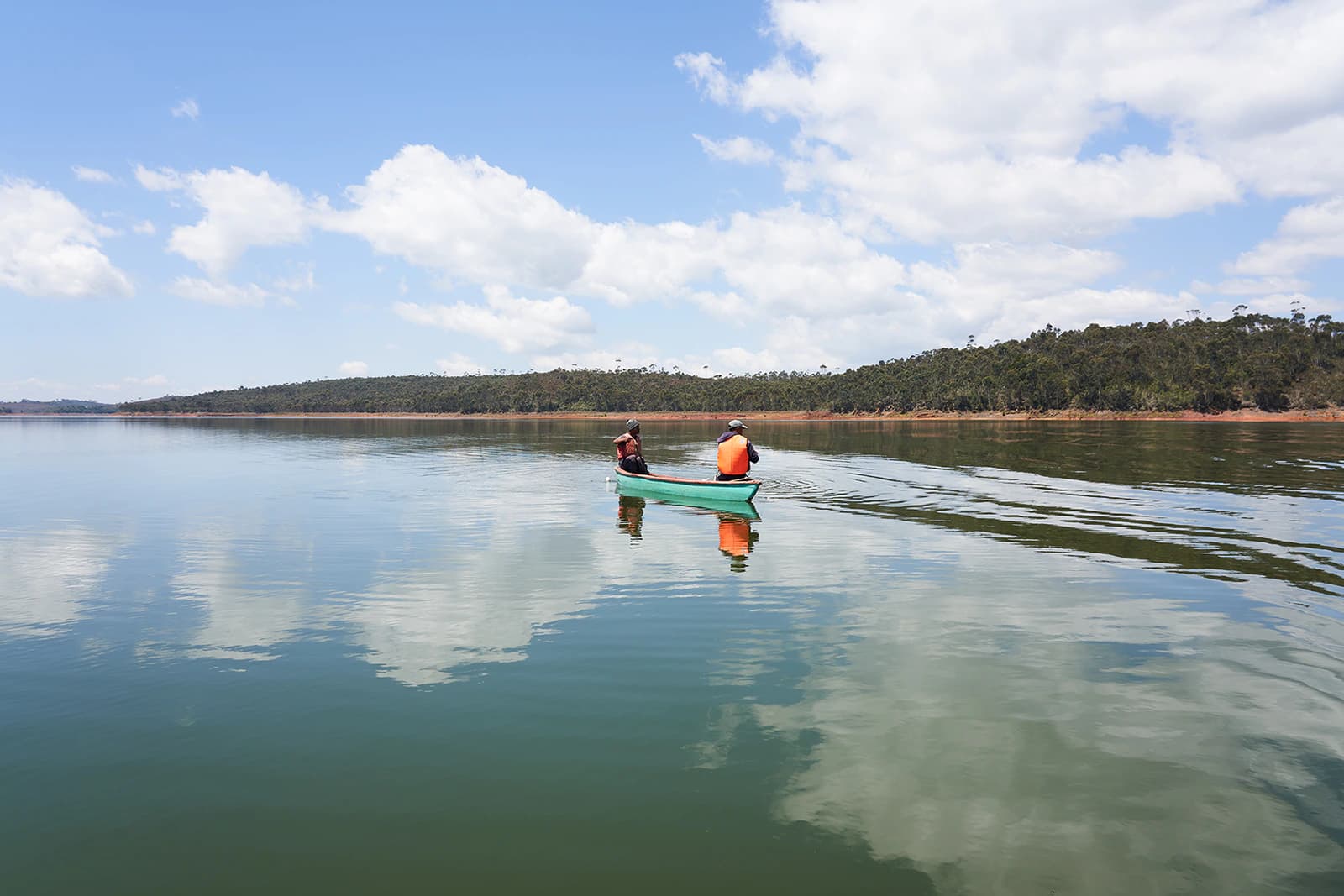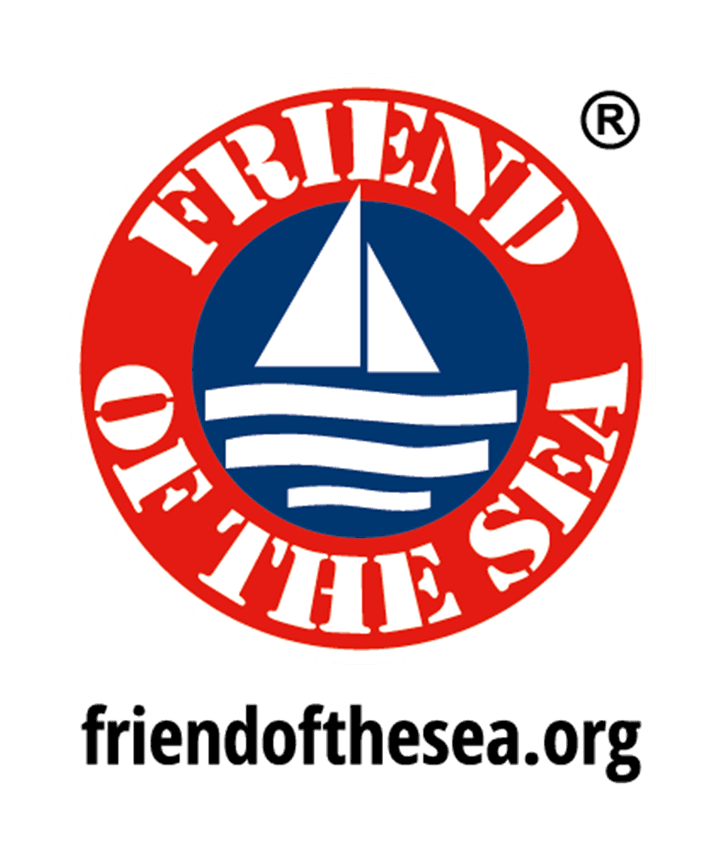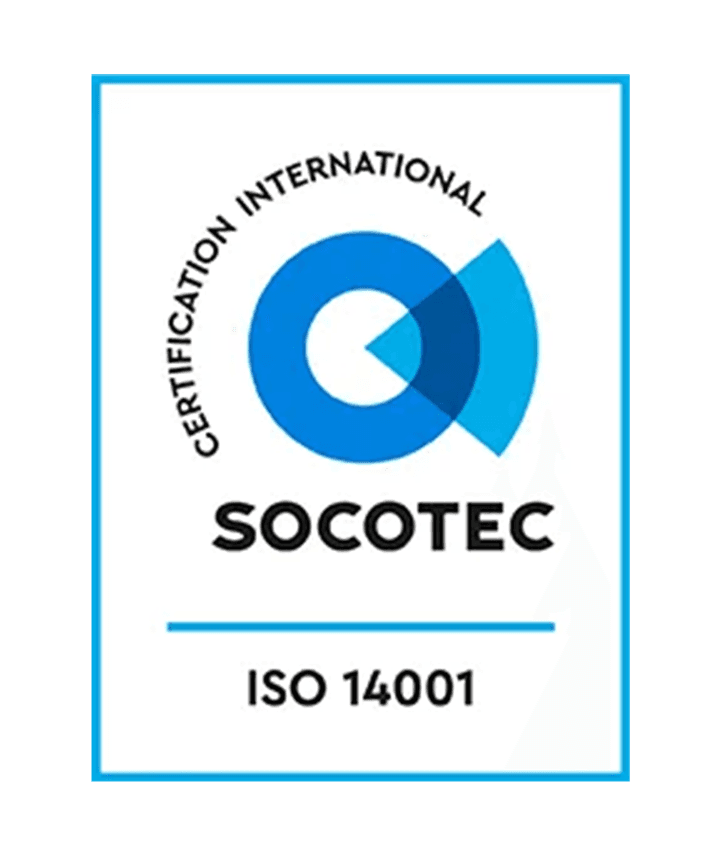A crazy but visionary gamble
Acipenser is a risky but visionary gamble. Our ambition is to become a world-class breeder-producer in the caviar market. The sustainable development of our activity is the main challenge, as, due to our type of farming, the production cycle is especially long, taking five to seven years for the fastest species and up to 12 years for the slowest.
Our goal is to reach 300 - 400 tons of fish for the biomass raised in the farming structures on the lake and 50 - 70 tons for the biomass raised in the onshore ponds, so the fish stock must be farmed for a long time. Regarding caviar production, the processing workshop is designed to handle all the input of caviar-producing females. The feed mill enables us to be independent and ensure better quality feed.
The socio-political context In Madagascar is difficult. The environment has not been considered a priority so far. For instance, there are still very few firms specialising in reprocessing waste or wastewater. So it is vital that the Acipenser farm implements and monitors an environmental policy, enabling it to be independent and operate its activities in-house as much as possible. Over and above that, it is essential that local residents, the various water users, and neighbouring communities are made aware of these best practices, and also find potential access to sustainable development, via Acipenser, and an interest in coexisting with the company.
This will only be possible by strengthening our local operational management with our neighbours, and in a wider business sense, by becoming a promoter of environmental values with all stakeholders.
The company’s general management is therefore committed to an environmental approach, where it ensures environmental protection, meets its compliance obligations (both legal obligations and those documented with its stakeholders) and aims to maintain its ISO 14001 certification for farming, sturgeon feed production and the production of caviar and fish flesh.
In this context, it undertakes to take responsibility for the effectiveness of the Environmental Management System (EMS) and ensure the environmental policy and objectives match Acipenser’s strategic diection and context. Stakeholders will therefore be taken into account when putting the EMS in place.
It will endeavour to ensure that the EMS requirements are communicated to the various processes and integrated into them. It will provide the resources needed to implement an EMS to ISO 14001 standard and guide and support people so that they contribute to the efficiency of the system, hence making it possible to prevent the various pollutions identified in significant environmental aspects, and achieve expected outcomes. It is committed to promoting ongoing EMS improvement in order to enhance environmental performance. With this in mind, an annual periodic review of the environmental policy and objectives is carried out to ensure continuous improvement in the environmental management system.
Issues and actions implemented
Respect for the environment and animal welfare
Acipenser is fortunate to have a healthy environment and makes every effort to protect it. From the start, the farm has thought about ways to limit its impact on the environment as much as possible. From choosing materials used for the construction of the buildings, to in-house production of sturgeon feed from local agriculture and farming nets, to generating electricity via solar panels on the lake facility and the production plant (275,4KWc), gravity-drained onshore ponds, repurposing waste or recycling, everything has been thought out in an eco-responsible spirit.
A reality officially confirmed by the obtaining of the environmental permit in 2014 by the Malagasy organization « ONE » (National Office for the Environment) and by the obtaining of the ISO 14001 version 2015 certification by the SOCOTEC group (Technical Control and Construction Expertise Company). Both these institutions do an annual review and assessment of the environmental management system. However, ISO 14001 is a more demanding management system to which we must prove that we have ongoing improvement by implementing ever more advanced objectives.
Sturgeon are highly dependent on the quality of their living environment. Since the lake supports more than 80% of the fish stock and supplies the fish farming ponds, it was therefore deemed a priority to focus actions on the quality of the aquatic environment. So water quality monitoring is required and with this in mind, the company aims to minimise its impact on both the lake water and the river water.
Both for the potential impact on the environment and the natural development of the lake, annual monitoring of physicochemical parameters and bio-indicators has been implemented in collaboration with Valéa Consulting since 2014, when the farm first began using the lake. A lagoon was built at the exit from the fish farm. The cleaning products used (Marseille soap and hydrogen peroxide) are non-persistent in the environment as far as possible. The choice to work at low density and streamline sturgeon feeding enables the Acipenser farm to reduce the production of organic waste. In fact, the sturgeon are not fed to satiety and the volume of feed used is calculated according to the weight of the fish, its stage of development and the water temperature. With the aim of maintaining the biodiversity of Lake Mantasoa it is restocked every year with thousands of fry (20,100 fry in 2021).
Acipenser is positioned as an environmental leader in its area. Each waste reprocessor is audited to ensure their reprocessing is compliant. In particular, a system for collecting waste from the floating feeder has been put in place. The fish farm also supports local populations in an ecological transition through learning how to sort their waste: organic waste is composted or incinerated. Plastic containers are reused or kept to a minimum. Hazardous products are reprocessed by specialised companies (diesel, waste oil, etc.). Waste from production (blood, viscera, gonad skin, swim bladder) is recovered by processing it into glue and fertilizer. Also, waste bins are installed around the Acipenser enclosure to encourage the neighbouring people not to discard their waste into the natural environment. Real cooperation has been set up, creating a circular economy with, in particular, the wrought ironwork business that transforms the original caviar cans into splendid baobabs. The money donated by the wrought ironwork business is all reinjected into the school they built and into the farm’s CSR actions.



Sustainable and responsible corporate commitment
Sustainable and responsible corporate commitment Acipenser is committed to corporate responsibility by caring about the development and well-being of its employees, in particular via the management of medical care. This year for instance, during Pink October, a vaccination campaign was led for all the women working on the farm. Listening and advice sessions, training on sustainable fishing, bush fire awareness campaigns, extra-professional activities such as football matches and moments of relaxation such as recreational days are also organised.
Every day, a vegetable garden at the onshore facility supplies the canteens with quality vegetables free of pesticides or chemical fertilisers for over 300 staff and 30 - 40 meals are cooked in the lake facility canteen. From the start, Acipenser has collaborated with the people of Mantasoa and Ambatolaona where 80% of its 300 employees have ben hired. Thanks to a corporate policy of in-service training provided by qualified trainers, they gradually develop in the company by discovering the different trades related to fish farming, caviar production and marketing. Since 2020, the farm has been trying to raise awareness about the carbon impact. Currently, air pollution remains the only factor that we are unable to properly measure and limit. In addition to more than 1,000 trees and plants planted by the company since 2019, it was decided to try to compensate for this difficulty by implementing the « 1 tree per employee » project since 2022. A massive reforestation project that is both inclusive and sustainable called « Madagascar’s Lung » is being put together at Acipenser but might require several years of feasibility studies before being set up.
The company's needs for raw materials, building materials and other consumer products have also led to new businesses opening up, with the direct consequence of economic development in the area. In addition, financial and material aid is regularly provided for the same purpose of economic progress. For instance, life jackets have been given to fishing communities to make crossing Lake Mantasoa safer when needed to supply the villages and market resources such as charcoal. Also, for better access to drinking water for residents, wells have been dug in partnership with the Rotary Club. Aid is given for the construction of schools and roads are repaved. Donations of sturgeon flesh are organised for school canteens or orphanages. During the pandemic, 4,800 cloth masks were donated to stop the virus spreading. In 2023, 9 tons of sturgeon (flesh, heads, fillets, etc.) were handed out to charities and orphanages such as Akamasoa, Adélaïde and Tsimoka in Antananarivo.
Acipenser aims to influence its environment not only on a small scale via neighbouring populations but also on a larger scale through its suppliers and partners and with fish farms around the world. For two years, the livestock farm has been investing in innovation in order to adapt to its context: in each key service, part of the budget is allocated to R&D and a « life cycle » centre has been set up. Thanks to support from Valéa Consulting, the future of the lake and its monitoring are well understood and give us a better understanding of the future. Communication of all these actions is therefore a major asset enabling us to share not only the progress but also the difficulties we are facing.